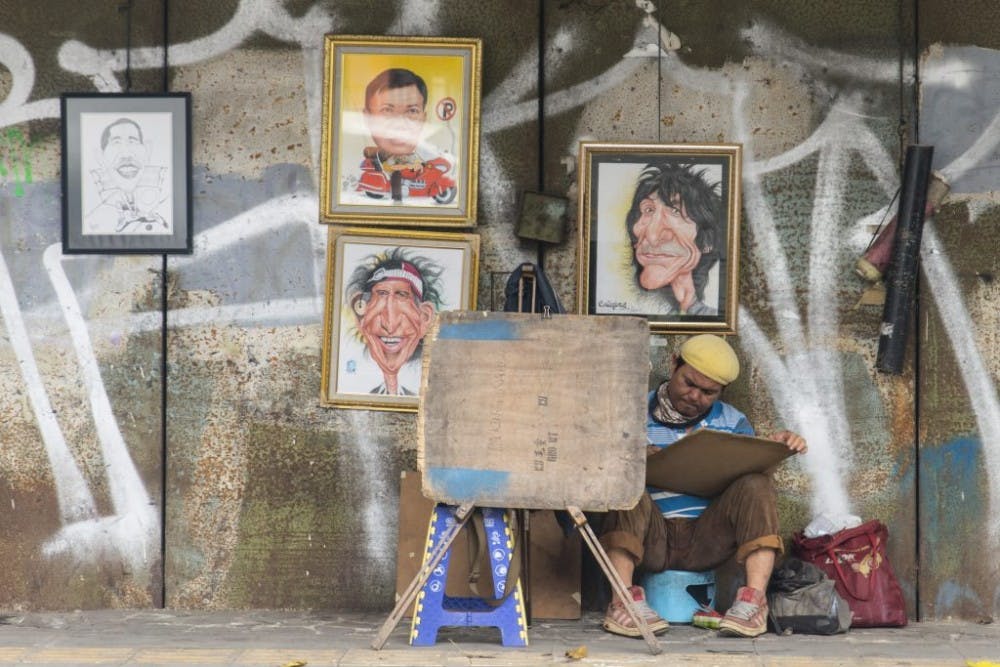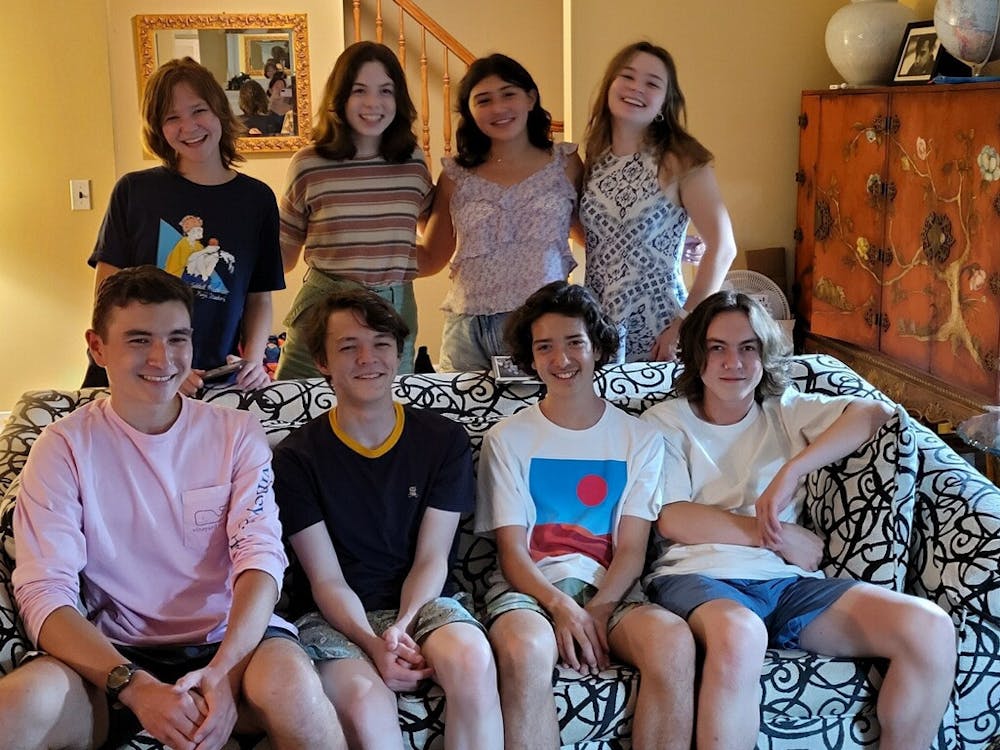“How can you call yourself an artist or call this art?” begins the cynic. “Art once obeyed a standard and hacked those that fell below. It threw them a day job.” Still seated, the homeless man’s head climbs without haste or emotion like a rusty forklift. “We once looked up to Michelangelo, hammocked from the ceiling of the Sistine Chapel, and it was enough entertainment for us — football, porn, and that Twitter machine all in one. Now what’re we stuck with, you? And the occasional fart joke and dead gorilla? Genius is awe, the sensation of, ‘how did you do that,’ not, ‘who gave what clown a paintbrush.’ Here, I’ll give you dollar to light that painting on fire.” He waves it in his face, sentences art to its most classic death: Capitalism.
Of an elderly complexion, the members of the crowd smile for the one brave individual and, in the meantime, dwell upon their one trip to Rome or Paris and the gifts that their ancient artists bestowed upon them in those travels; they find themselves in agreement — silence. That is, except for one man whose words were too long and dusty to speak without first clearing his throat — an academic.
“It’s true,” lifts his chin. “Certainly, visual art is one that has been left behind. While other disciplines have advanced with each tick of history’s clock, the one that dates all the way back to cave paintings has returned to its clumsy state of birth.” The academic gestures to the panda painting as evidence. “Sheer reason denies this man the right of genius. Today’s geniuses undertake microscopes and computers as their brushes and pencils, because they’ve evolved to realize that to waste their talents on such gaudy trifles was exactly that, a waste.” All the while, the homeless man holds his canvas still, as if entreating his critics to look deeper.
Again, the bus stop arches its brow, asks itself if it’d want its children to spend their days in a lab or a studio — silence. That is, except for a passing girl, endowed with the requisite eyeshadow and biting grin.
“Why must you all fear so much?” snaps her head, much to the expectation of the crowd and the deflation of her point. “This painting here is an expression, no different than a foot down or a hand up, and it deserves respect even if it doesn’t agreement. We all have a right to art, just as we all get one to vote. Not only the geniuses, but All. Sure, it might be flawed but...”
“And that must then be an expression of yours — and flawed, you best believe that is,” interjects the academic. “To the same tee, you lack the right to speak for him.”
“You kids today and your expressions and your modern art,” tags in the cynic. “Oh, years of smoking weed and playing hacky sack didn’t bring about world peace? Well, I am all out of ideas.”
“Now, new sir,” says the academic, upon seeing the girl ready her reply. “She is only a child. This is not about her, nor is it her fight...”
“Why is it always a fight with you...”
“Now, now,” re-commands the academic, seeing the floor as his to assign. “Allow him to share his side, to express himself.” The girl stands silenced like a student that didn’t raise her hand.
The bus stop stops in interest, hangs on the edge of its bench. The senior cynic postures himself like a gargoyle, stone to life around him yet ever-ready to pounce. The academic moderates. As for the girl, she bites her lip — the teenage default. The whole street waits. They wait so long that they begin to expect, but the homeless man speaks what they don’t.
“I don’t make art to play genius. You’re all right; that time has passed. Geniuses have made history for so long that that brand of art — landscapes and women and such — has long been common. The same way that people goldrushed to California until it no longer was worth the trip, opportunity always meets excess — as I am now. What used to stir wonder no longer seems that hard. From the wheel to the iPhone, how long does wonder last? The answer is that it doesn’t anymore. And since there is so little room left at the top — so many people to step on along the way — artists are stuck with finding something different. Insignificant maybe, but different. Even if it is a panda in a tuxedo when you expected a penguin. Even if your art is just your own life. You do not need to squeeze and suffer until you steal the last breath left. It’s enough to find a different room, even if it is smaller.”
Silence pervades those that listened. “Don’t think that you can impress us with your rambling,” spits the gargoyle. “Who are you, anyways?”
“I am not trying to impress you.” The homeless man drops his canvas face-down on the sidewalk. “That’s the point.”

















Please note All comments are eligible for publication in The News-Letter.